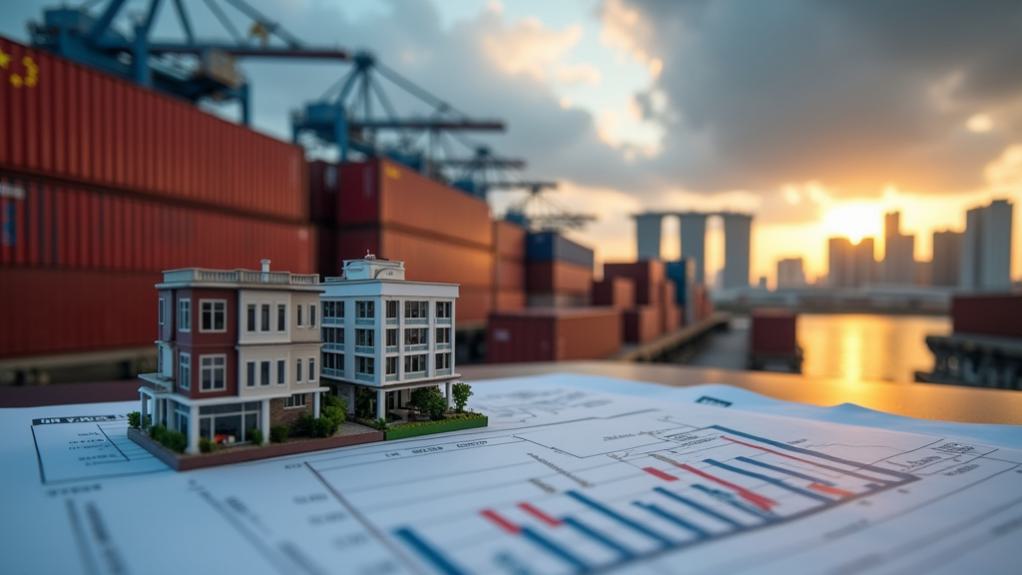While global trade tensions continue to reverberate across international markets, the implementation of President Trump’s sweeping tariff policy—establishing a 10% baseline on all imports with targeted increases of up to 54% for certain nations—has begun to exert significant pressure on Singapore’s real estate sector.
Although Singapore faces only the baseline 10% tariff rather than the higher rates imposed on China and Southeast Asian neighbors like Cambodia and Vietnam, the city-state’s trade-dependent economy remains vulnerable to these protectionist measures.
Singapore’s relative tariff advantage offers little shelter for its trade-reliant economy against this new wave of protectionism.
Construction material costs, particularly for steel and aluminum, have increased substantially, creating inflationary pressures throughout Singapore’s building industry. These elevated expenses are increasingly transferring to end consumers in both public and private housing segments, with developers adjusting pricing strategies to maintain profitability amid tightening margins.
The resulting supply chain disruptions have extended project timelines for both HDB developments and private condominiums, exacerbating existing inventory constraints in prime residential areas. The monetary policy response may include interest rate adjustments to counter inflation while supporting the property market.
Public housing initiatives face particular challenges as government-funded construction projects contend with material inflation and procurement delays. The Housing Development Board may need to recalibrate pricing structures or implement additional subsidies to maintain affordability standards for lower-income Singaporeans.
Despite potential downward pressure from reduced transaction volumes, persistent demand for public housing is likely to sustain price levels in this segment. For most buyers, understanding the consideration period remains essential when navigating the increasingly complex property transaction process. Singapore’s proactive cooling measures, including a steep 60% Additional Buyers Stamp Duty, continue to maintain market stability despite external pressures.
In the private condominium market, an unexpected consequence has emerged from global economic uncertainty. Singapore’s reputation for stable governance and secure investment opportunities has attracted risk-averse foreign investors seeking shelter from volatile stock and bond markets.
This capital inflow has chiefly targeted luxury residential properties, reinforcing price resilience in premium segments despite broader economic headwinds.
The long-term outlook for Singapore’s real estate market will depend on the duration of these tariff policies and the government’s adaptive responses.
While construction costs and supply chain disruptions represent immediate challenges, Singapore’s strong economic fundamentals and regulatory framework position its property market to weather these trade-induced pressures more effectively than many regional counterparts.





